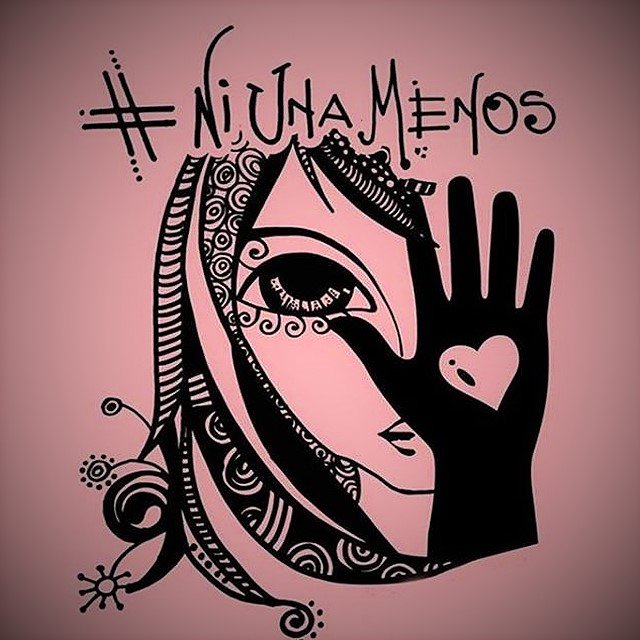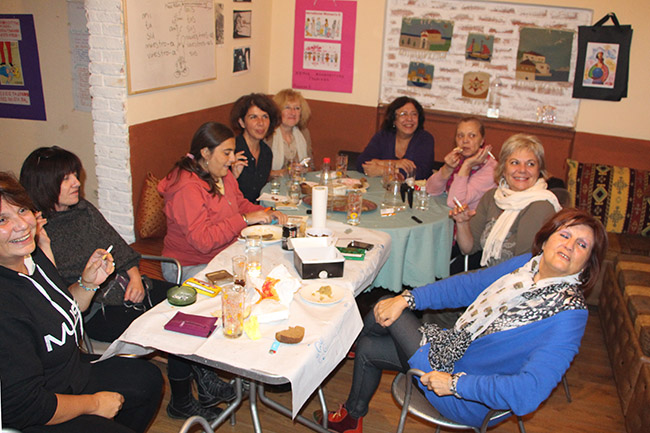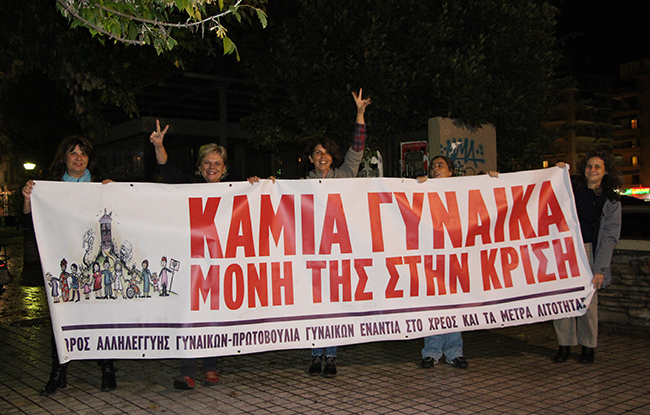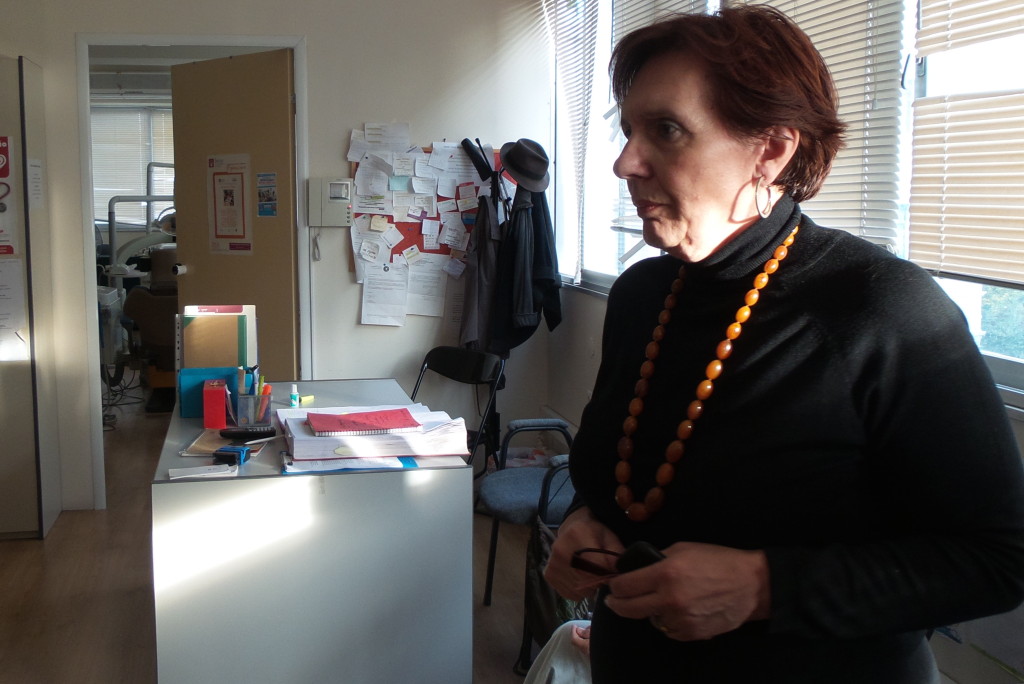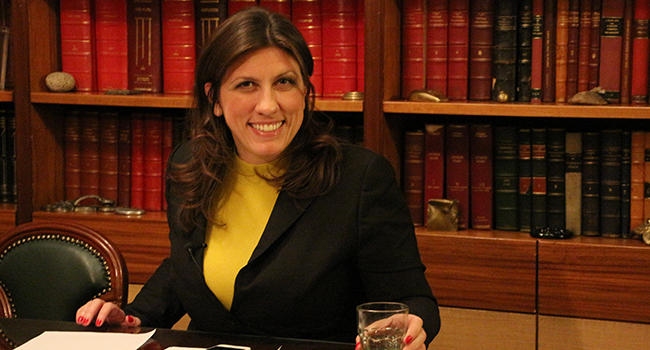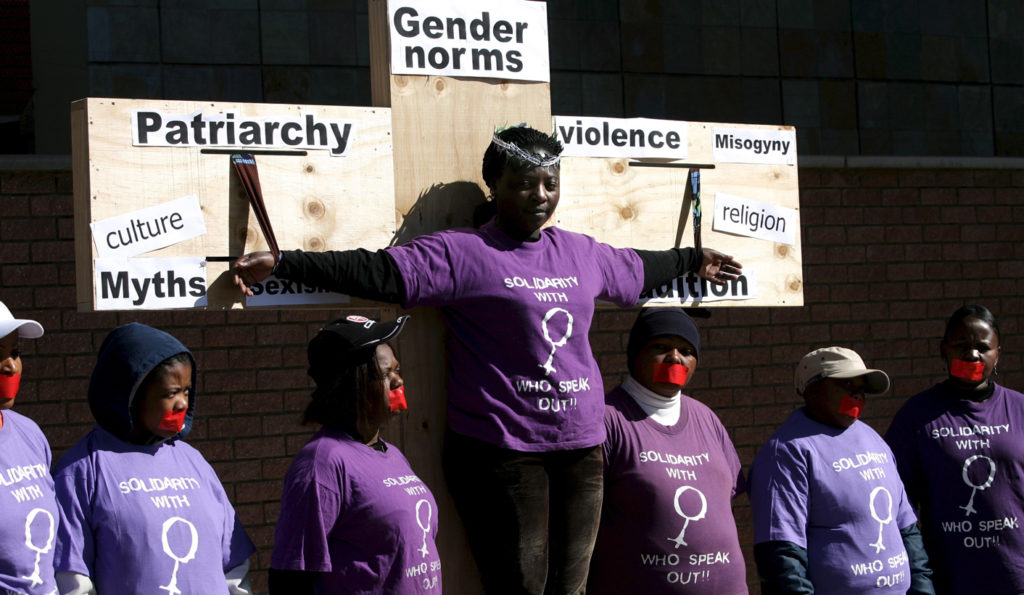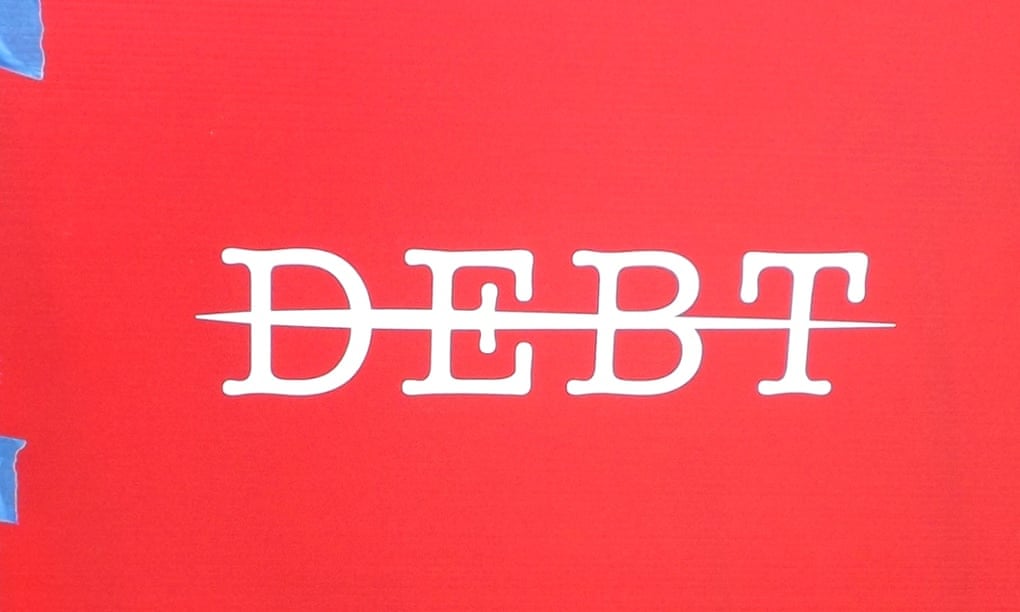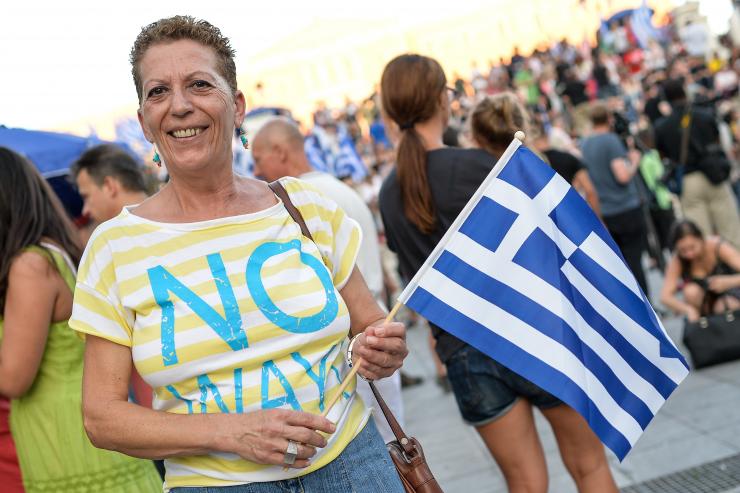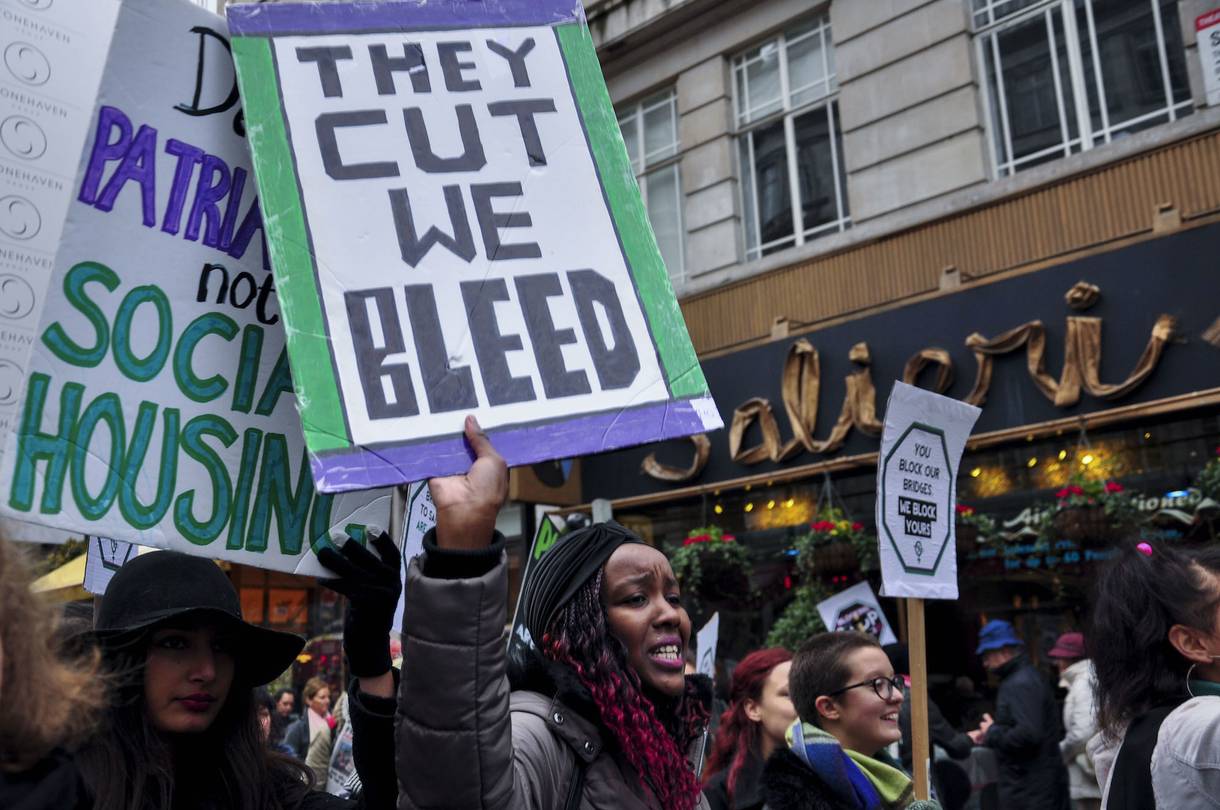
On Sunday, November 20, women shut down major bridges in London, Bristol, Newcastle and Glasgow, to protest recent drastic cuts in domestic violence services, a decade of cuts in domestic violence services, and, more generally the State’s pogrom against Black and Minority Ethnic, or BME, women, lesbians, immigrant and migrant women, poor and working women. Sisters Uncut organized the action to put the State on notice: “Theresa May claims she wants to end violence against women and girls. To do that we need an awful lot more than refuges. We need a long term, sustainable funding plan for all domestic violence services. We need universal access to benefits so survivors have the resources to escape, rather than policies like the benefit cap which are making it even harder when already 52% of survivors report that they can’t afford to leave. We need domestic violence support services for black and brown, disabled and LGBT+ survivors – a `one size fits all’ generic approach might save money but it doesn’t meet needs. We need funding for outreach workers who are able to slowly build up survivors’ confidence over time and support survivors before the danger escalates, rather than a focus solely on crisis response. We need an end to gentrification and the devastating effects it has on communities; not all survivors want or are able to access support services, and it is their neighbours that provide their lifeline. And we must see the links between violent, racist government policies and the increased risk for black, brown, Muslim and migrant women experiencing domestic violence. We demand a secure, long term plan to support ALL domestic violence survivors, regardless of immigration status, with specialist services for black and brown, disabled and LGBT+ survivors.”
When it comes to services for domestic violence services, the grimness of the numbers is only exceeded by the viciousness of the program that has established them. In September, Women’s Aid reported the Government’s plan would force 67% of specialist domestic abuse refuges in England to close, and that 87% of refuges in England would be forced to reduce their current level of provision. In Wales, 69% of refuges would be forced to close, and 100% would have to seriously reduce their current level of provision. Because migrants are restricted from using public funds, migrant non-binary people women are turned away from refuges, social housing, benefits or healthcare. How do you want your pain and suffering, slow and torturous or fast and torturous? Welcome to the economies of torture.
Marcia Smith, a domestic violence survivor, remembered: “When I went to the police with bruises, they said they couldn’t see my bruises because I was black. People don’t see black women as victims, and we get racism instead of help. With black services, you don’t have racism, you have the trust and support you need.” Is it any wonder that 90% of BME survivors prefer to receive support from a specialist BME organization?
Sisters Uncut declared an end to the destruction of women’s lives: “We will not stand by as black and brown survivors are left stranded in abusive homes without the bridges to safety provided by specialist domestic violence services, whilst migrant survivors with ‘no recourse to public funds’ find all of their bridges blocked by the government’s immigration policies.”
You block our bridges, so we block yours. Just prior to Theresa May’s Autumn Statement, where she will reveal the new budget, Sisters Uncut declared it time for Women’s Spring, and in doing so, joined women in the past few months in France, Argentina, Poland, South Africa who themselves joined the women water protectors at Standing Rock in the United States and Grassy Narrows in Canada, and beyond. It’s time, it’s way past time: “To those in power, our message is this: your cuts are sexist, your cuts are dangerous, and you think that you can get away with them because you have targeted the people who you perceive as powerless. We are those people, we are women, we will not be silenced. We stand united and fight together, and together we will win.”
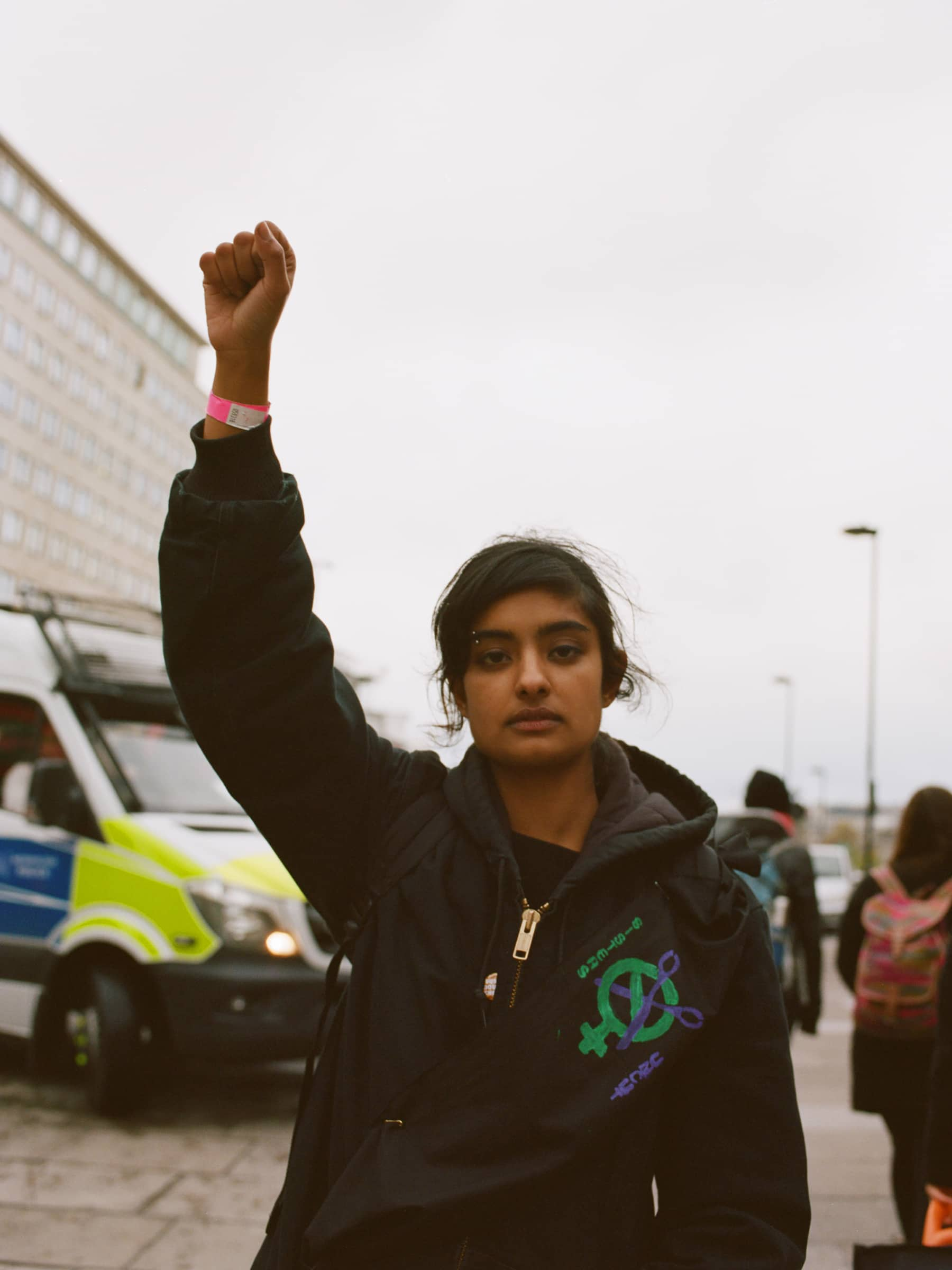
(Photo Credit 1: Broadly / Alice Zoo) (Photo Credit 2: The Fader / Holly Falconer)


